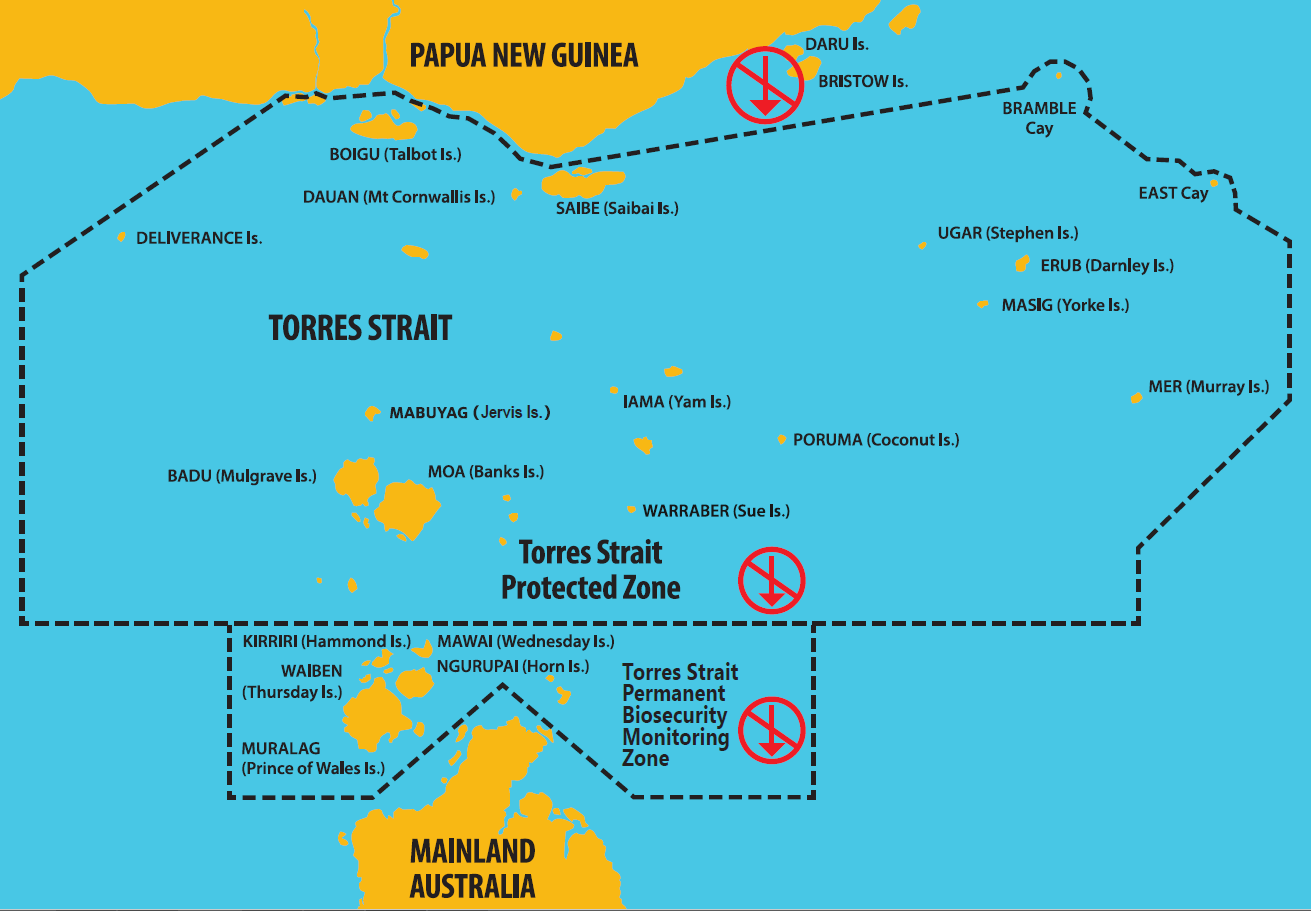The Department of Agriculture, Fisheries and Forestry regulates the movement of aircraft, goods and passengers from Torres Strait under the Biosecurity Act 2015.
This includes the monitoring of aircraft arriving on mainland Australia from designated biosecurity zones in Torres Strait, to assess any biosecurity risks posed by the aircraft or goods and passengers on board.
Pilots of aircraft travelling from Torres Strait biosecurity zones to mainland Australia must comply with all reporting and assessment requirements before being cleared by our biosecurity officers.
Map of Torres Strait biosecurity zones

Pre-arrival reporting
The Biosecurity Act 2015 requires aircraft pilots departing from anywhere in Torres Strait to report to us (either pre-departure or a minimum of 30 minutes prior to landing on the Australian mainland) to assess and manage biosecurity risks posed by each journey.
- Pilots can report directly to the biosecurity officer on the Torres Strait Island of departure and organise a pre-departure inspection prior to leaving (during office hours 08:00 to 16:00).
- Aircraft inspected through this process are not subject to any further reporting or notification requirements on the mainland for that particular journey.
- After a pre-departure inspection is conducted, or notification is received, we will issue the pilot a notification number that the airline company must keep as a record for future reference and audit purposes.
Changes in flight details must be reported as soon as possible to our officers at Horn Island Airport on (07) 4069 1310 or to our Thursday Island office on (07) 4212 0185.
Disinsection of your aircraft
Pilots are also asked to make sure that aircraft departing Torres Strait undergo “disinsection” for mosquitoes using an approved insecticide, available free of charge at all our Torres Strait offices.
Disinsection involves the application of pre-spray aircraft insecticide (containing permethrin) to the aircraft interior and external lockers prior to passengers boarding aircraft. This can be applied at the beginning of the day if you know the aircraft will be returning from Torres Strait to the mainland.
This formulation is not registered for application to aircraft while passengers are onboard.
Assessment of your goods and aircraft
A biosecurity officer will assess your aircraft and the goods you are carrying based on:
- information obtained during the pre-departure inspection
- notifications provided by the pilot.
Pending these assessments, your aircraft may have to be inspected if a biosecurity risk is identified.
Goods that require an import permit, or which need to meet alternative conditions (such as a treatment) must not be removed from your aircraft or taken onto the Australian mainland unless they are accompanied by the import permit issued by us or have had their alternative conditions met.
If the goods don’t have an import permit or don’t comply with their import conditions, you can surrender the goods to a biosecurity officer. This will free you from any further biosecurity requirements.
Find out more about moving goods from Torres Strait.
There are no fees or charges for assessment and inspection services for Torres Strait movements.
Report signs of pests or diseases
Keep a Top Watch! for swarming insects, such as bees or mosquitoes, and make sure your aircraft is not transporting exotic insects or providing breeding sites.
Report biosecurity risks such as live insect swarms to 1800 900 090.
Find out more about Northern Australia target pests and diseases.
